Top 10 in ship finance 2018
There is not a lot of change in this year's Top 10 in shipfinance, with Chinese institutions still taking charge on a global scale, expanding while others continue to contract
As part of our 2018 Top 100 most influential people in shipping series, we look at the very best in ship finance, where Chinese leasing firms and Chinese banks are retaining their grip on the purse strings
01 / Hu Xiaolian, Export-Import Bank of China
UNDER Ms Hu’s leadership, the Export-Import Bank of China, or Cexim, has become the world’s largest shipping lender.
The policy bank replaced DNB and climbed to the number one place with a $17bn portfolio at the end of 2017, representing a 7% increase from 2016, according to statistics published by Marine Money in June this year.
Investment in tonnage built at Chinese yards stood at nearly $18bn for the first 11 months this year, accounting for more than 30% of the global total, according to Clarksons. That will likely help Cexim, the leading financier for China’s shipbuilding markets, to retain the top spot.
What is more, the bank is involved in businesses that go much beyond ships but can significantly impact shipping.
In addition to its much-discussed support for the Belt and Road Initiative, Cexim has now also become a leading lender to facilitate President Xi’s plan to boost the country’s imports.
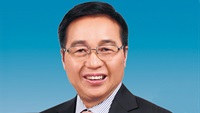 02 / Chen Siqing, Bank of China
02 / Chen Siqing, Bank of China
THE bridge loan that enabled Cosco Shipping’s $6.3bn takeover of Orient Overseas International Ltd alone should secure Bank of China a place in our Top 10 financiers list.
The deal not only makes the Chinese state giant now the fourth-largest container ocean carrier, with a market share able to match to the current top three players, but is also likely to have a profound impact on the landscape of the liner shipping industry.
Meanwhile, as one of the four largest state-owned commercial banks in China, BoC has remain a substantial presence in the ship finance arena. It ranked fifth in Marine Money’s latest league table, with a $15bn portfolio at the end of 2017.
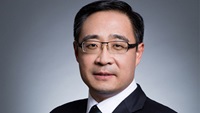 03 / Zhao Guicai, ICBC Finacial Leasing
03 / Zhao Guicai, ICBC Finacial Leasing
ZHAO Guicai heads up ICBC Leasing, the 12th-largest ship lender in the world, according to Marine Money, with an $11.8bn portfolio at the end of 2017.
ICBC Leasing has seen phenomenal growth under Mr Zhao and is expected to put another $2.8bn on its shipping book in 2018.
This year, it lease-financed four 320,000 dwt very large crude carriers for Evangelos Marinakis’ Capital Maritime & Trading for about $210m. The ships are being built at Samsung Heavy Industries.
It has also joined CDB Leasing’s move in ordering large dry bulkers backed by charters on index-linked rates.
With growing experience, increasing competition and a changing regulatory environment, expect Chinese lessors — and ICBC Leasing— to adapt and consolidate growth.
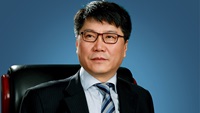 04 / Zhao Jiong, Bocomm Financial Leasing
04 / Zhao Jiong, Bocomm Financial Leasing
ZHAO Jiong has inherited a large leasing empire with nearly Yuan220bn ($31bn) of assets from his processor Chen Min, who retired from Bocomm Financial Leasing in August this year.
When it comes to its shipping assets, the company had a book of more than Yuan60bn, with a fleet of about 350 ships as of end October.
Affected by a lack of large leaseback deals, new investment in shipping this year is expected to reach $2bn compared to about $2.8bn in 2017. However, that in no way suggests intentions of the lessor to scale back the business.
Instead, it has shifted its focus onto financing newbuildings — including five large liquefied natural gas carriers without long-term charters — which have less drawdown in the current year but will spur the growth in the coming biennium.
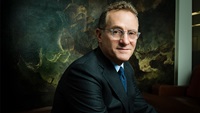 05 / Howard Marks, Oaktree
05 / Howard Marks, Oaktree
HOWARD Marks has grown Oaktree Capital into a major alternative investor, with interests in product tankers via Torm, dry bulk shipping via the ever-growing Star Bulk, and shipmanagement with this year’s buy-in to OSM Maritime Group. Other deals this year include a strategic partnership with digital freight booker Loadsmart.
In May, Oaktree executives Mark Montgomery and Dave Starling were installed as president and chairman, respectively, of the board of directors of Ports America, following the departure of chief executive Michael Hassing. Oaktree Capital Management is the manager of the Highstar Capital, which controls Ports America.
Mr Marks and Bruce Karsh founded the investment firm in 1995. Its ambition is to deliver superior investment results while keeping the risk undertaken under control.
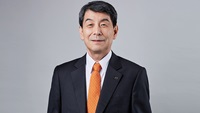 06 / Lee Dong-gull, Korea Development Bank
06 / Lee Dong-gull, Korea Development Bank
FOLLOWING the recent waves of restructuring, the Korea Development Bank has become the largest shareholder of Hyundai Merchant Marine, South Korea’s only global shipping line. It also owns more than 50% of Daewoo Shipbuilding & Marine Engineering, one of biggest domestic shipbuilders.
Supported by the state lender, HMM this year — despite widening losses — ordered $2.8bn worth of 20 mega containerships at DSME and two other major Korean yards.
However, the deal, set to boost the carrier’s fleet strength and the builders’ revenue, was also deemed by some to have put a big damper on shipping market sentiment and shipbuilding fair competition.
This has highlighted KDB’s role as the financial chief in Seoul’s ambitious yet controversial masterplan to revive the two important sectors in the country.
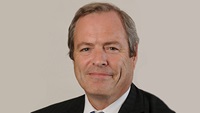 07 / Michael Parker, Citi
07 / Michael Parker, Citi
YOU know you are in trouble when one of the doyens of shipping banking predicts the demise of shipping banking. Yet that was the prognosis on offer from Citi’s Michael Parker at a conference in London.
The industry will, in future, be financed as part of the wider global supply chain, he averred. “Shipping will disappear from the lexicon,” he grimly added.
British-born Mr Parker joined Citi on graduation in 1977 and has worked for them ever since. Initially he worked with clients in the UK construction and international oil and mining sectors, but has consistently specialised in shipping in recent decades.
We hear he is still cutting deals, with one source describing him as “still very proactive”.
Mr Parker is a member of the Lloyd's List editorial board.
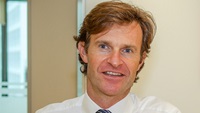 08 / Michel Löwy, SC Lowy
08 / Michel Löwy, SC Lowy
BELGIAN-born Michel Löwy set up his own fixed income specialist in Hong Kong in 2009, after a career that included stints at Deutsche Bank, Cargill and Arthur Andersen.
The firm came to prominence via a number of debt transactions in South Korea, including Korea Line Corporation and Pan Ocean.
However, Mr Löwy himself makes it onto the top 10 for the first time after acquiring $160m of non-performing shipping loans from Italy’s troubled Banca Monte del Paschi di Siena.
Full details are not in the public domain, but several shipping bankers singled it out as one of the marque deals in what has been a quiet year for ship finance.
 09 / Andy Dacy, JP Morgan
09 / Andy Dacy, JP Morgan
THE hallmark of the true ship finance pro is to keep on making money whatever the bigger picture, and Andy Dacy’s team at JP Morgan has drawn attention this year with some nifty asset play.
June saw the bank sell a couple of ultramaxes to Greek owner Blue Planet, pocketing $7m more on the pair than it paid in April 2017.
JP Morgan also planned to sell five capesizes to GoodBulk as part of the latter’s intended Nasdaq initial public offering, which was subsequently shelved. But even though the float did not come off, the sale of two of them still went ahead, at a reported price of $63m.
All of this is small beer in the investment banking world, perhaps, but beating the Greeks at their own game is surely illustrative of a certain level of nous.
 10 / Doug Mavrinac, Jefferies
10 / Doug Mavrinac, Jefferies
SINCE the last time this list was published, Doug Mavrinac has made a career-defining leap from being one of the industry’s most high-profile analysts to heading the shipping investment banking function at Jefferies.
He is also ubiquitous on the ship finance conference circuit, and a regular on business television programmes, making his opinions hard to escape — even if you were foolish enough to wish to escape them.
Jefferies was one of the joint book-runners for Genco’s public offering of common stock just prior to the failed GoodBulk IPO, and one of our US contacts was most effusive, describing Mr Mavrinac’s work on this one as “masterful”.
Mr Mavrinac joined Jefferies in 2003 and prior to that worked for nine years in the energy industry, mostly as a financial analyst for Royal Dutch Shell.
The Top 10 in finance list is compiled by the Lloyd’s List editorial team and considers the most influential people in commercial banking, investment banking, and alternative finance.
The Lloyd's List editorial board members are recognised experts who will provide feedback and guidance on all aspects of Lloyd’s List’s editorial output. All board members remain strictly neutral as far as any companies or organisations to which they are affiliated are concerned. You can find out more, and view a copy of the Lloyd's List Editorial Values here.

